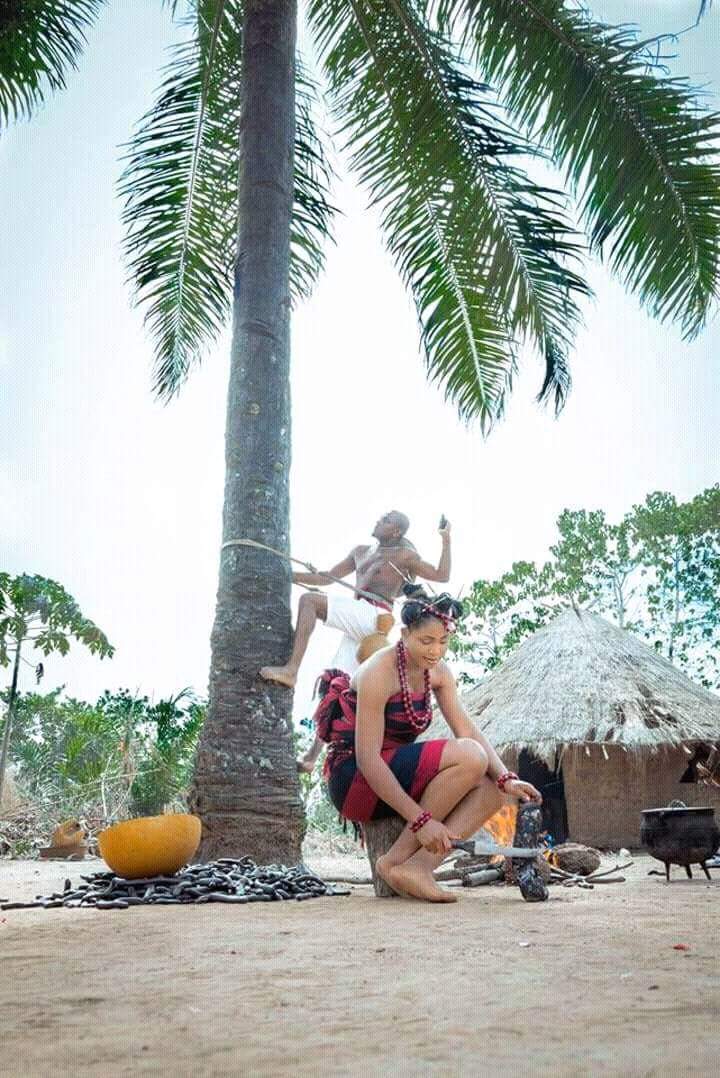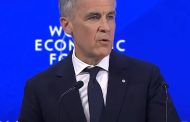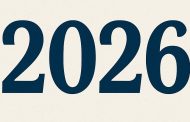By Adagbo ONOJA
The musical messaging under review here, in spite of its overt aim, is the powerful creativity locked in the production. So powerful it compels one to, instinctively, shuffle the legs alone in the room each time one plays it. It was a matter of time before it becomes a point of departure into Idoma popular culture, delayed only because someone to whom the script was sent for a second opinion warned against publishing it during the electioneering campaign. Doing so, he said, risked being misunderstood as a clever campaigning for the subject of the production. not minding that no one in Intervention has met the gentleman. Well, the elections are over now and the creativity of the production can be situated in its larger context, including what Intervention sees as the communal/leadership responsibility arising from the production.

Legendary Bongos Ikwue in a musical seizure!
A critical review of their productions shows how difficult it would be for the cultural antennae of anyone who grew up in the rural communities in post-independence era around Idomaland not to rise. Their capture of that ambience through the Oglinya dance, the deployment of the flute, complete with the rhetorical manoeuvres that makes it social criticism as well as a performance is incredible. It is unbelievable that all these have survived colonialism. It brings back the debate in those days at the University of Ibadan regarding whether colonialism was an episode or an epoch. Perhaps, we have to return to the debate, after collating and listening to other Araba Hip-hop groups around the continent. Also intriguing is how the chaps in Araba Hip-hop are able to perform the actual Oglinya dance in spite of the impact of CNNisation and Coca colanisation, apologies to Prof Isawa Elaigwu.
Certainly, the messaging has not attained the stature of Israel Ekere’s ‘Gwumol lo’Owoicho’ which gets even the most sophisticated Idoma elite any and everywhere in the world to dance to its arresting beat. The ‘Araba Hip – hop’ chaps who produced the stuff are not competing with Ekere. Unlike Ekere and his evangelical artistry, theirs is a political advertisement sponsored by Philips Agbese who goes by the title of Okanga 1 of Idomaland and who got the text producers to produce the music. But even as a categorical political messaging extolling Philips Agbese who was a contestant in the March 2023 election into the House of Representatives in Nigeria, there are elements of cultural power resources beyond the original intention and agenda. And that is the essence of this piece.

Is Chief Philip Agbese raising the cultural stakes?
Araba Hip-hop guys are not as much into invocation or re-interpretation of ontological contentions, certainly not as directly as Joe Akatu, Joe Onyela, Igbe or Bongos Igwe. Their forte is social criticism, particularly of political leadership in Idomaland. In the script on Agbese, they were arguing the case for rotation of the House of Representatives seat for Ado/Ogbadibo/Okpokwu Federal Constituency to Ado area, saying Okpokwu and Ogbadibo have had their share. And then the second part was devoted to why it had to be Agbese because ‘they’ didn’t bring electricity, ‘they’ didn’t build roads, schools or hospitals and ‘they’ were repressive and inconsiderate. Your guess is as good as mine in relation to who the ‘they’ refers to. But that is not the concern here although it is significant in that the criticism reflect the folk notion of what the politicians should do. Whether it is proper to expect a legislator to build roads, schools, hospitals is a different thing. But it might not be outrageous as it could indicate that the folks have learnt and understood that Nigerian legislators collect something called Constituency Allowance which a few of them implement to the admiration of the folks. That sentiment came out very clearly in the musical text under review, suggesting a sentiment that must have percolated into communal consciousness even if they do not express such on a daily basis. Of course, it is not all politicians who are guilty of this infraction.

The late Joe Akatu, the unsurpassable rappaeuter of ‘Alime’
But even as a political advertisement, the artistic skills in the rendition of their claims is quite powerful. At some point, it becomes difficult to know where the advertisement stopped and the artistry started and vice-versa. The assemblage and weaving together of rhetoric, agency, culture and community into a message advertises a different potentiality – innovation in the politics of regime of truth. What it means is that a successful harvesting of all such groups into a collectivity can enhance communal tussle for hegemony in Nigerian politics. As an ethnic minority, that strategy offers the Idoma the cheapest and most viable option.
The improvisation to their credit makes one wonder what those boys can do or how far they can go in cultural resource mobilisation if the opportunity for them to retool in advanced interpretive skills as well as in access to relevant technology. Intervention does not know what ‘Araba’ means in Idoma language but the chaps behind that musical group are no pushover in artistic creativity and the task is to pile pressure on Agbese and his colleagues to consider employing a cultural manager to explore pushing them up. Their pedigree in musical production would warrant that, especially their remix called ‘Oglinya International’ and which I am listening as I write. Its rhetoric is evocative of all we treasure but miss in our cultural make-up. The rhetoric suggests these are educated chaps who probably haven’t found their way into the system.

Most would agree that this is Bongos Ikwue’s most philosophically difficult musical number in Idoma language to analyse
The idea is to prevent another round of communal error in Idoma lack of appreciation of the accomplishments of Joe Akatu, one of the most intelligent artists the world has ever seen. His deft use of language, the social depth they convey and the originality is beyond comparison. He is one of those the colonial character of modernity pushed to the margins of the global halls of artistic fame. Otherwise, with Akatu’s multiple endowments – he was a lyricist, a poet, a philosopher, a dancer, a critic, a guitarist and a seer – he should be a global star. If the Idoma played their cultural card, he would still have been. All said and done, he would still be. International Relations as a discipline is, for example, gradually changing name to ‘Global IR’. The name change is necessitated by the realisation that what the world has been studying as International Relation is nothing but Western metaphysics or European cosmologies. As that cannot go on anymore, there is a reverting to cosmologies around the world to constitute a truly global discipline of cultures and identities. It is doubtful if the Idoma, for example, have any other more complete cultural voice than a Joe Akatu.
It is thus a shame that there is probably no PhD thesis on him by any young Idoma chap up till now partly because our conception of being modern or civilised is a negation of ourselves. The risk there is there might be no PhD thesis on a Joe Akatu or Bongos Ikwue until someone comes from Scotland or Berlin to do one. Yet, no text teaches social induction in the agrarian political economy than Bongos Ikwue’s OUNNO sang in Idoma language. Ikwue’s Ellakunogo is a classic in poststructuralist lens. Yet, our universities neither teach these texts nor attach any importance to them. And it makes one wonder why they have courses in political theory or political economy.
When Chief Audu Ogbeh was National Chairman of the People’s Democratic Party (PDP), the idea of a ‘National Conference on Idoma Literature’ which he would attend with his guests was considered. Sometimes, in the hurly burly of Nigerian politics, the simplest idea could be difficult to push through. If such an idea could not be pushed across to an Idoma National Chairman of the ruling party who is a member of the literati, how could it be pushed through a soldier man David Mark as Senate president? It has rested in pieces. But it does not require an Idoma national leader to do that. Any informed national leader of whichever ethnic or religious or regional identity will appreciate the imperative of enhancing minority cultural and language groups anywhere in the world.
It is probably unfair to put the load on any individual politicians but, while we await a national leader with critical appreciation of the management of minority language groups, there is something to enhance in what Okanga 1 has started. The point has already been made regarding how a successful harvesting of all creative groups into a collectivity can enhance communal subject positioning. But, additional to that, doing so can reinvent the society, now that Joe Akatu is dead and gone and is irreplaceable, Joe Atama is too old to sing, Igbe and Bongos Ikwue are gradually bowing to age and no new original text producers are coming to sight. This is not the time to abstract and absolutise one contradiction or another typical of all artists and, on the basis of that, begin to denigrate or dismiss an Akatu or any other in that category. Thankfully, Apa TV is wonderfully setting the stage, starting with Odeh Akoji’s world class interview with Idoma cultural hero, Odogwu Amanyi.




























